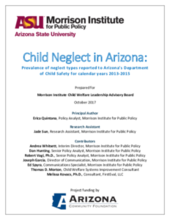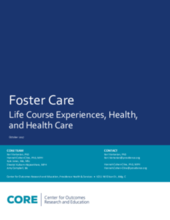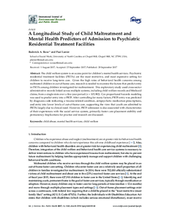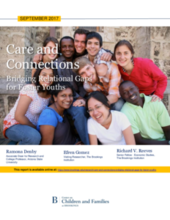Displaying 1511 - 1520 of 2221
This video series from Better Care Network, in partnership with Child's i Foundation, highlights promising practices in children's care in Uganda.
This talk will explore the adaptation of FOCUS, an evidence-based, skill-building preventive intervention, for foster families and foster youth in college and provide clinical adaptations.
The objective of this project was to review a sample of reports made to Arizona's Department of Child Safety (DCS) with neglect allegations and identify the types of neglect present in the hotline narrative and investigation narrative.
Health Share of Oregon collaborated with the Center for Outcomes Research and Education (CORE) to explore how the foster care experience influences people’s lives and their interactions and attitudes about health and health care.
This rapid review from Coram Voice contributes to the understanding of care leavers’ experiences and is also the first stage in a project to develop a survey of care leavers’ subjective well-being, according to young people’s own evaluations of how they feel about their lives.
Anecdotal and limited objective studies have indicated that children and youth being raised in nonparental settings, such as those with custodial grandparents or in foster care, show a higher need for mental health services. They are often prescribed psychotropic medications at a higher rate. The authors set out to study the prevalence of this trend in a sample group of suburban community health center child and adolescent patients who are being served through an outpatient school-based program of Prince William County, Virginia in the US.
This exploratory study used cross-sector administrative records linked across multiple systems, including child welfare records and Medicaid claims, from a single state in the U.S. over a five-year period, to investigate the factors that predict entry into psychiatric residential treatment facilities for children.
The purpose of this study is to determine which factors associated with foster care agencies contribute to higher levels of foster carer satisfaction.
This study examined visual recognition memory and executive functioning (spatial working memory, spatial planning, rule learning, and attention shifting) in 12-year-olds who participated in the Bucharest Early Intervention Project, a randomized controlled trial of foster care for institutionally reared children.
This report explores the challenges of implementing and evaluating relationship-based interventions for young people with experience in the U.S. foster care system and presents recommendations for both practitioners and researchers for successful implementation and evaluation in the future.





